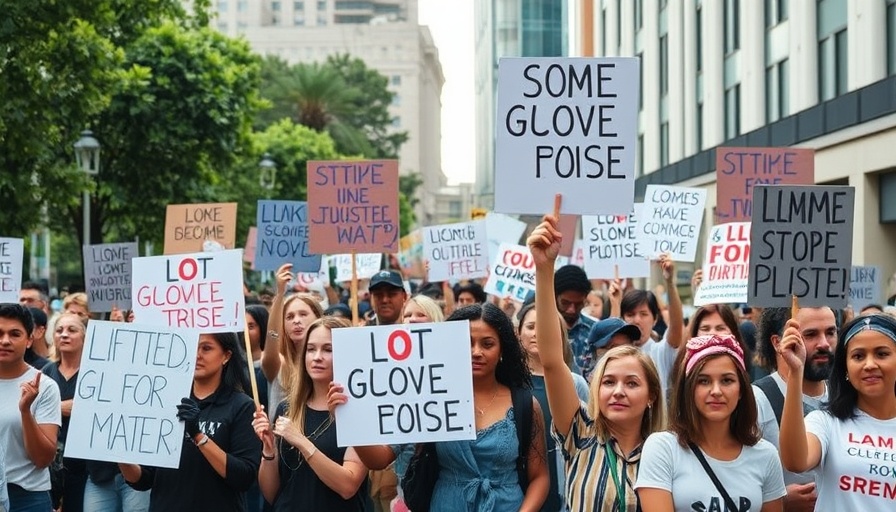
Clarifying Deportation Policies: The Ozturk Case
In a recent chilling incident, Rumeysa Ozturk, a Turkish graduate student studying at Tufts University, was apprehended by U.S. Immigration and Customs Enforcement (ICE) agents while simply walking on a street in Somerville, Massachusetts. This unsettling event, which took place on March 25, highlights the concerning realities surrounding deportation protocols in the United States. Ozturk's arrest appears to stem from her involvement in a controversial op-ed criticizing Israel's actions and advocating for the university to divest from its assets. However, the case raises important questions about the transparency and justification of such actions by government agencies.
Due Process: A Cornerstone of Justice
Due process is an essential principle in the United States, designed to ensure that individuals are treated fairly and justly under the law. The abrupt detention of Ozturk, without clear public reasoning or prior indication of any wrongdoing, has sparked outrage and concern among civil rights advocates. Critics argue that such actions undermine the fundamental rights guaranteed by the Constitution, particularly for international students, who are already in a vulnerable position. Advocates for immigration reform emphasize that no deportation should occur without a thorough investigation and a transparent process that allows individuals to contest their status.
Understanding ICE's Justifications
A senior official from the Department of State recently commented on the matter, stating that those whose visas have been revoked had exhibited 'problematic behavior' that would have made them ineligible if disclosed earlier. This counterpoint introduces a new layer of complexity, suggesting that the actions taken against individuals like Ozturk may be part of a broader strategy to enhance national security. Yet, the vague nature of 'problematic behavior' brings into question the criteria and the process used to determine such actions. Why is there a lack of clarity regarding the specific behaviors deemed unacceptable?
A National Conversation on Immigration
The incident underscores a growing national debate surrounding immigration and deportation policies. With the current political climate emphasizing security, many fear that these measures disproportionately affect students and individuals from marginalized communities. Social justice activists argue that practice contradicts the principle of freedom of speech and raises alarms about a chilling effect on dissent. If individuals fear potential repercussions for voicing dissenting opinions, then what does this say about our commitment to protecting free expression in academic and public discourse?
Future Implications for Students and Academics
The fallout from Ozturk's case may provoke wider implications for international students and academics in the U.S. As educational institutions increasingly face pressures regarding their ties to politically sensitive issues, students could find themselves navigating an increasingly hostile environment. This scenario leads to concerns regarding educational integrity, intellectual freedom, and the overall health of academic discourse. The question emerges: how can institutions strike a balance between security and academic freedom while fostering an inclusive environment for all students?
Call to Action: Engaging in Dialogue
In light of these developments, it is crucial for communities, academic institutions, and policymakers to engage in dialogue about the direction of immigration policies and their implications for civil liberties. Advocating for reform that emphasizes due process can help restore faith in the justice system, ensuring that all individuals, regardless of nationality, are afforded their fundamental rights. We must push for legislation that protects these rights and calls for transparency from governmental agencies.
 Add Row
Add Row  Add
Add 




Write A Comment